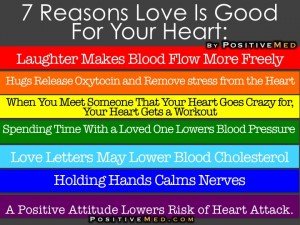
Why You May Have Pain In Your Butt
The proverbial expression “pain in the butt” refers to something causing annoyance or frustration. A pain in the butt, however, while certainly annoying and frustrating, may literally indicate a variety of conditions that warrant a medical examination and immediate treatment. There are multiple sources for pains in the butt that differ in risk, duration, severity, and intensity.

Temporary Sources: Conditions that cause temporary pain but may worsen, include viruses like shingles, an abscess, fungal infection, anal ulcers, fissure, fistula, and hemorrhoids.
• Shingles: Shingles, caused by the chicken pox virus, varicella or herpes zoster virus, results in a painful, burning or itching skin rash that can appear almost anywhere on the body but only on one side. Usually shingles develop only once, but some people suffer from recurrent episodes.
• Abscess and fungal infections: An abscess results from bacterial infections and usually appears close to the anal opening. Fungal infections are caused by fungi that thrive in moist areas.
• Fissure, ulcer, and fistula: Fissure and ulcers, tears or splits in the lining of the anal canal often caused by extended periods of diarrhea or elimination issues, but may also be from a STD. A fistula occurs when a narrow tunnel develops in the anal passage and causes pain if it forms an abscess, or is blocked by stool.
• Hemorrhoids: An irritation and swelling of the veins in the rectum that appear as a lump and can occur internally or externally. Usually caused by straining during pregnancy or a bowel movement, external hemorrhoids are the most painful.
Chronic Sources: Pains in the butt that are caused by more serious sources include STDs, Crohn’s Disease, prostatitis, tumor, cancer, and sciatica.
• $e*u@lly Transmitted Diseases (STD): Common STDs include campylobacter, chlamydia, shigella, chancroid, granuloma inguinale, syphilis, genital herpes, and the human papilloma virus (HPV) and lead to a number of problems in the body including pain in the anal area.
• Crohn’s Disease: Crohn’s Disease is chronic inflammation of the gastrointestinal tract that can lead to tears in the lining of the anus or rectum.
• Prostatitis: A condition in men resulting from an inflamed prostate gland. Possibly stemming from a bacterial infection, prostatitis causes pain in the penis, scrotum, anus, lower back and during urination and ejaculation.
• Tumor and Cancer: Although anal cancer is rare, the American Society of Colon & Rectal Surgeons reported this year that the number of diagnoses is increasing. Most cases result from an infection from the human papilloma virus (HPV) that also causes penile cancer in men and increases the risk of vaginal and cervical cancer in women.
• Sciatica: Sciatica refers to symptoms of pain, numbness, weakness, or burning in the back and/or buttocks that may also run down the leg. This year, the Cleveland Clinic reported that the causes of sciatica range from a herniated or slipped disc, spasms in the piriformis muscle that lies deep in the buttocks, spinal stenosis or narrowing of the spinal canal, and Spondylolisthesis, which occurs when one vertebra is out of line.
References
American Society of Colon & Rectal Surgeons. (2012). Anal Cancer. Retrieved from: http://www.fascrs.org/patients/conditions/anal_cancer/
Cleveland Clinic. (2014). Sciatica. Diseases and Conditions. Retrieved from: http://my.clevelandclinic.org/health/diseases_conditions/hic_What_is_Sciatica
Crohn’s & Colitis Foundation of America. (2014). What is Crohn’s Disease? Retrieved from: http://www.ccfa.org/what-are-crohns-and-colitis/what-is-crohns-disease/
Harvard Medical School. (2004). Hemorrhoids and what to do about them. Harvard Women’s Health Watch. Retrieved from: http://www.health.harvard.edu/newsweek/Hemorrhoids_and_what_to_do_about_them.htm
The National Kidney and Urologic Diseases Information Clearinghouse (NIDDK). (2014). Prostatitis: Inflammation of the Prostate. National Institutes of Health (NIH). Retrieved from: http://kidney.niddk.nih.gov/kudiseases/pubs/prostatitis/
Whitlow, C.B. (2004). Bacterial Sexually Transmitted Diseases. National Institutes of Health. Clin Colon Rectal Surg. Nov 2004; 17(4): 209–214. Retrieved from: http://www.ncbi.nlm.nih.gov/pmc/articles/PMC2647235/





